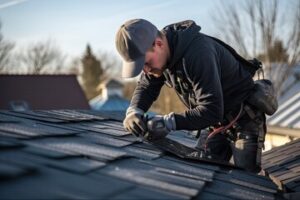Polished Concrete is the ideal flooring option for; commercial & business facilities, warehouses, retail locations, restaurants, car showrooms & many other spaces. It is sanitary, low maintenance and requires no hazardous coatings or cleaners to maintain.

It is a hard surface that can be somewhat echoy but can be mitigated with soft coverings like rugs or drapes. It is also highly reflective which can help reduce energy costs by reducing the need for artificial lighting. Contact Polished Concrete Orange County for professional help.
Known for their impeccable shine and reflectivity, high gloss polished concrete floors add a sophisticated touch to any space. Achieved through a meticulous process of grinding, honing, and polishing, the results are floors that are truly works of art.
To achieve a high-gloss finish, the concrete is first ground with progressively finer grits of diamond abrasives to remove any dirt and debris that may be embedded in the surface. Then, a chemical densifier is applied to fill in the pores and create a smooth, even texture that’s ready for polishing. The final step is to repeatedly buff the concrete with increasingly finer abrasives until it reaches the desired level of sheen.
Aside from being an attractive option for commercial spaces, where aesthetics are a priority, high-gloss polished concrete is also extremely durable and easy to maintain. By simply sweeping or vacuuming the floor on a regular basis, as well as mopping it with a pH-neutral cleaner, you can keep your floors looking their best. In addition, a quality stain guard or protective sealant can be added to further protect the concrete from spills and stains.
Another popular choice for industrial applications is satin finished concrete. While not as shiny as the high-gloss finish, satin is a great alternative for those who want to achieve a more traditional look. It’s also easier to maintain than the high-gloss finish, as it requires less frequent maintenance and buffing.
In addition to choosing the method for achieving your perfect concrete floor (Grind and Seal or Mechanically Polished Concrete), you can also customize the look by adjusting aggregate exposure. Choose from a minimal aggregate exposure for a sleek, modern look, or more pronounced exposure for a rustic appeal. The gloss level can also be customized to achieve a matte, satin, or high-gloss finish.
Once you’ve decided on the concrete you’d like to polish, it’s important to choose the right equipment for the job. A professional contractor will use a high-quality diamond polishing machine with various sized metal and resin disks to remove the rough surface of the concrete. After using the 100 and 200 grit metal disks, many contractors will then switch to resin pads that are one grade rougher than the texture of the last metal disk.
Durability
Polished concrete is an extremely durable flooring option. However, it is not impervious to wear or damage. It can still be damaged by chemicals, harsh cleaning products, and heavy machinery. In these cases, it’s important to use only pH-neutral cleaning materials and place mats or barriers near areas of high usage. In addition, regular maintenance will help to minimize damage.
Unlike other types of floor coverings, polished concrete floors don’t have to be waxed or coated with protective agents to protect the surface. This reduces the need for labor and material costs, as well as environmental concerns. Additionally, if your facility uses industrial type equipment, a polished concrete floor can eliminate the need for wheeled hoppers or parts baskets, further reducing cleaning and maintenance needs.
In high-traffic areas, polished concrete can be more susceptible to damage. In these cases, regular maintenance and the application of a protective coating may be necessary to extend its lifespan. This is particularly true in areas with forklift traffic, as the sharp turns and heavy braking of these vehicles can cause the concrete to become scuffed or worn down over time.
The initial grinding process of a concrete polishing job uses a metal diamond pad that is bonded with either a metal or hybrid material. This pad is used to remove the top layer of concrete that has been bonded with glues, paints, epoxies, stains, and blemishes. This step is essential to ensuring a smooth, consistent, and even surface for the rest of the polishing process.
After the initial rough grind, the next step is to start the polishing process using a resin diamond pad. This pad is used to remove the fine scratches and achieve the desired level of shine on the concrete. It is also during this stage that a densifier is typically applied to the concrete. A concrete densifier is a chemical solution that penetrates into the pores of the concrete and creates a reaction to harden and dust-proof the surface. This helps to ensure that the concrete will hold its shine over time and resist abrasions.
Low Maintenance
Polished concrete is a low maintenance alternative to other flooring options. It is easy to clean and resists stains, making it an excellent choice for busy commercial spaces. Additionally, polished concrete is highly reflective, which improves ambient lighting in the space and can help to reduce energy costs.
Unlike tiles, which are often prone to cracking under heavy loads and require grout cleaning to maintain appearance, a polished concrete floor is one continuous surface that can be easily swept and mopped. With the addition of a concrete sealer, polished concrete is even more resistant to stains and liquid penetration.
For warehouses, distribution centers and other industrial spaces, the tough, durable surface of polished concrete is perfect for withstanding the weight of machinery, pallets and foot traffic. Its sleek, modern look also makes it popular in retail stores, showrooms and offices.
The polishing process uses ever-finer grits of diamond tooling in multiple steps to remove the top layer of cement and expose aggregate in the concrete, if desired. Control joints, spalls and other imperfections can be repaired during this process, creating a custom floor that is unique to your facility. The densifier used in the final step of the grinding process hardens the concrete, which helps prevent stains and makes it easier to clean.
Although it is possible to perform some polishing at home, the equipment, power requirements and tooling required for professional concrete grinding should always be left to a professional. A professional can ensure that the job is done correctly and efficiently, reducing downtime and improving the long-term durability of the floors.
Once the concrete is polished, it can be treated with a natural-look impregnating polish guard that penetrates 2-5mm into the pores of the concrete and helps prevent staining from oils and spills. This coating is breathable, meaning that it allows vapor transmission and will not trap moisture beneath the floor.
In addition to the many practical benefits of polished concrete, it is a beautiful and customizable flooring option that can be enhanced with decorative scoring options to create bands, grids, borders and logos. The smooth surface can also be colored with floor dying or staining to add further visual appeal.
Sound Reduction
Unlike carpet or other flooring, polished concrete floors don’t harbor dust, dirt and other allergens. They also allow for easy cleaning and are healthier for people with allergies or asthma.
Another benefit is that the floor’s highly reflective surface helps minimize reverberation. This can be helpful in spaces where noise transmission is a concern, such as libraries. With the addition of certain acoustic underlayments or floor coverings, concrete can even achieve a NRC rating that rivals some traditional flooring materials.
Concrete is a very durable material that is naturally slip and chemical resistant. This makes it ideal for commercial properties where safety is a priority. In addition to being durable and long-lasting, polished concrete is extremely easy to maintain. This can help reduce costs associated with flooring maintenance and replacement.
Additionally, concrete’s high light reflectivity can help to brighten a room and reduce the need for additional lighting. This can further contribute to savings in energy costs.
The versatility of polished concrete allows for design customization to suit a wide variety of uses and styles. From retail spaces and offices to warehouses and healthcare facilities, polished concrete is a great option for virtually any space.
In new construction projects, polished concrete is often installed right alongside other flooring materials, such as tile or hardwood. In renovations, the existing concrete slab can be used as a base for polished concrete, which streamlines the installation process and saves on labor costs.
While polished concrete is very durable, it is not without its limitations. For instance, the lack of insulation means that the concrete can feel cold underfoot, especially in areas with heavy foot traffic. While there are a number of ways to mitigate this, such as adding rugs or thick curtains, these methods can add to the overall cost.
Lakeside has been a trusted partner of Toledo area businesses for over 20 years, providing concrete polishing services for both new and existing buildings. Our skilled team can create a visually appealing, high-performance concrete surface to meet your needs. Contact us today to learn more about our services or to request a quote.

